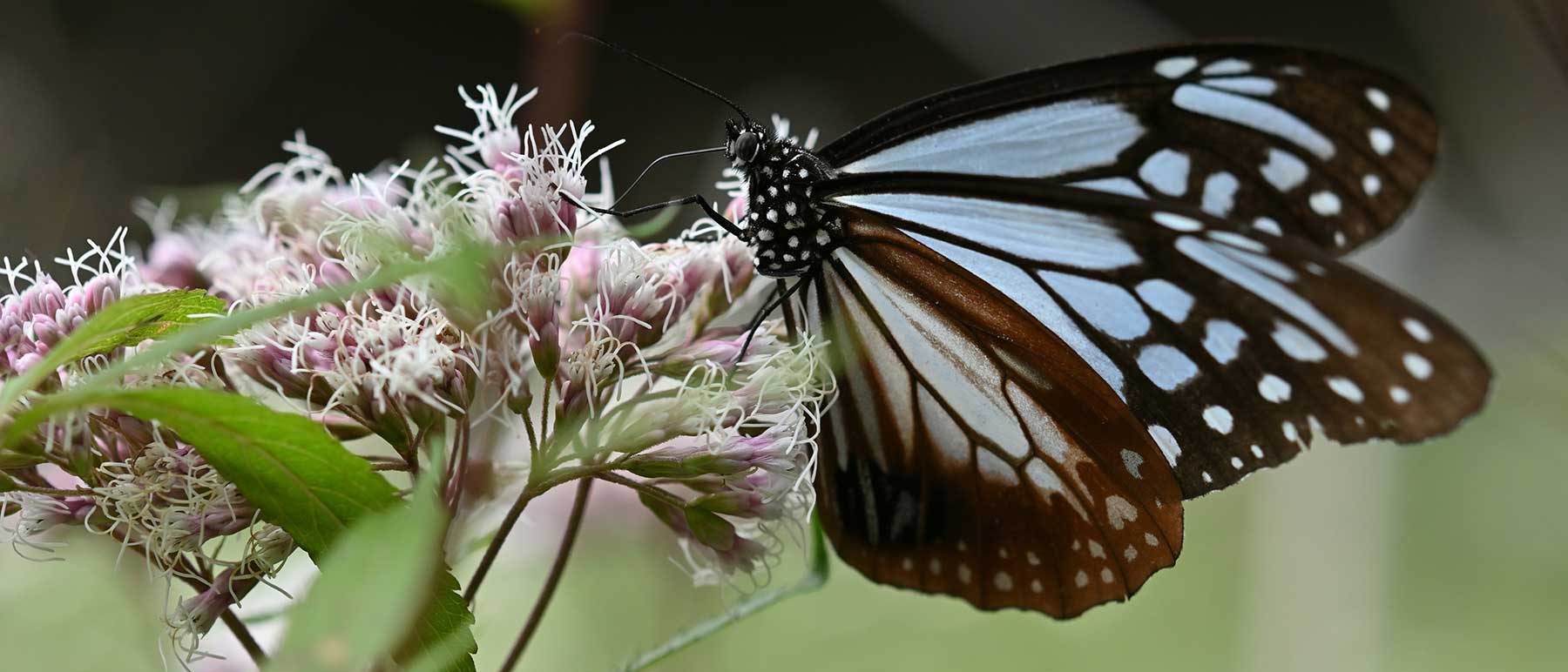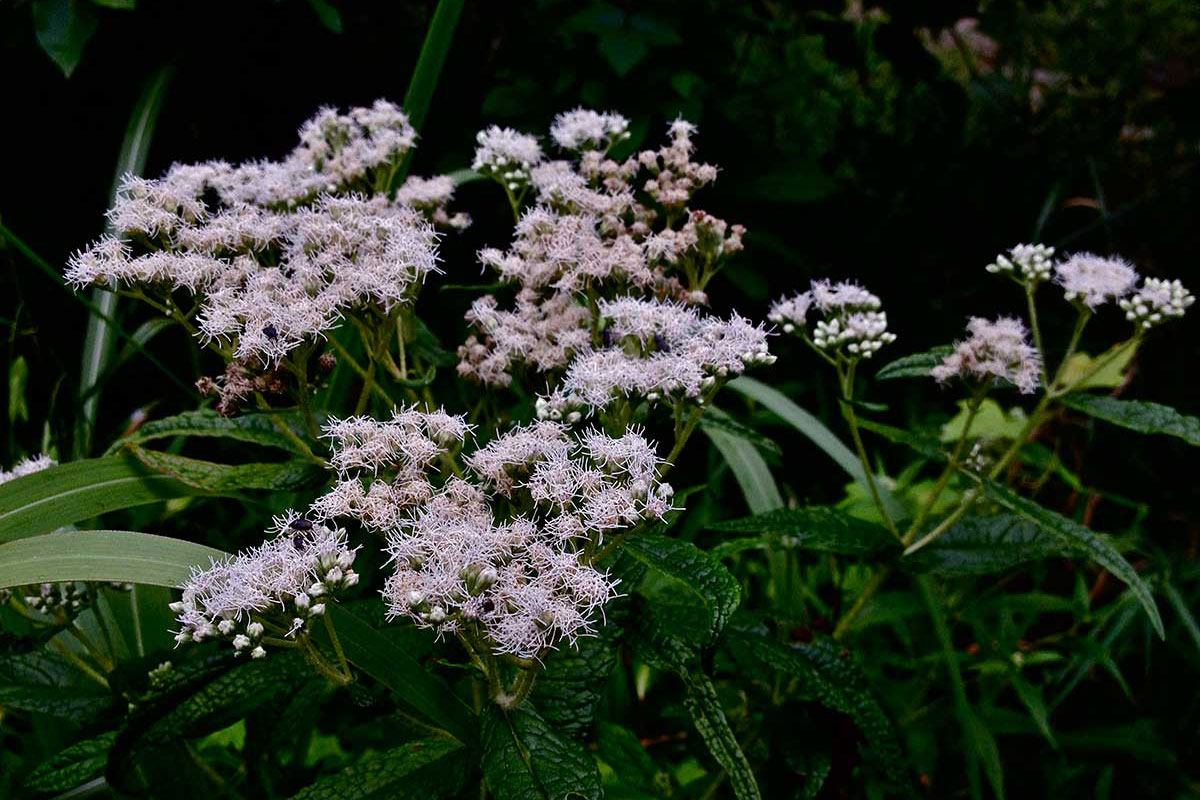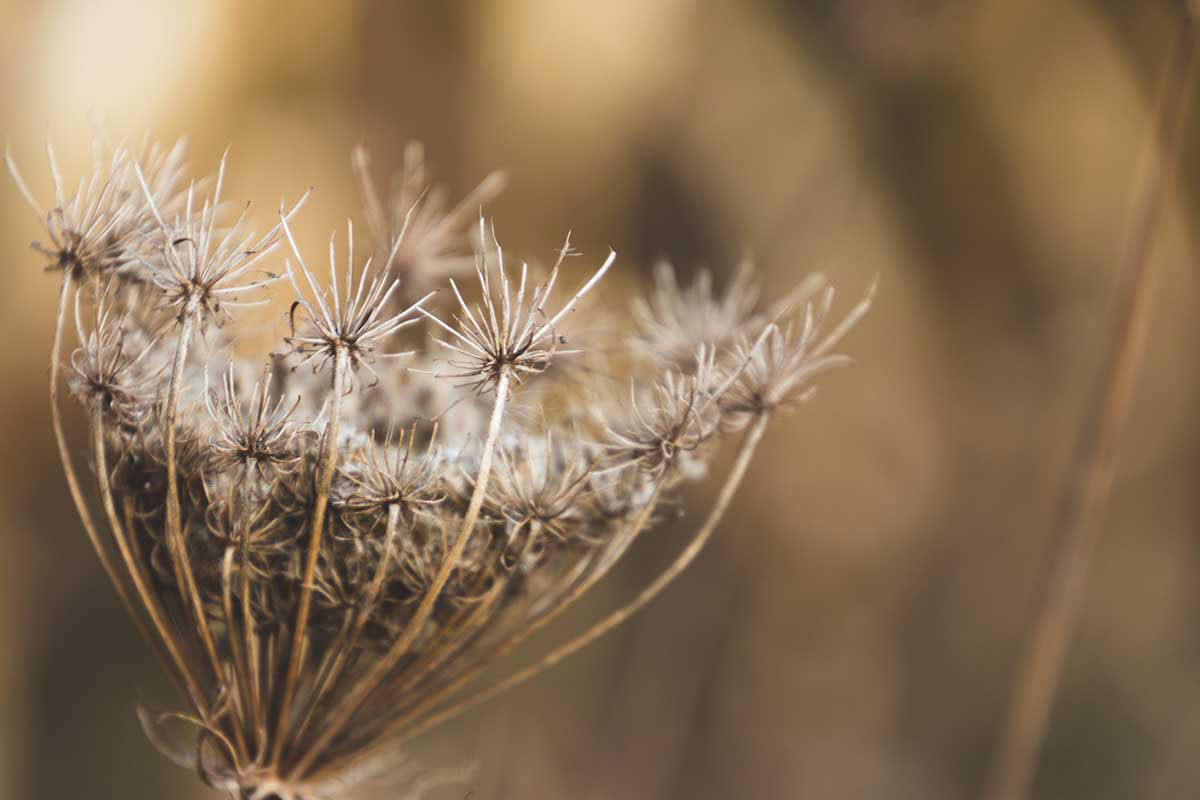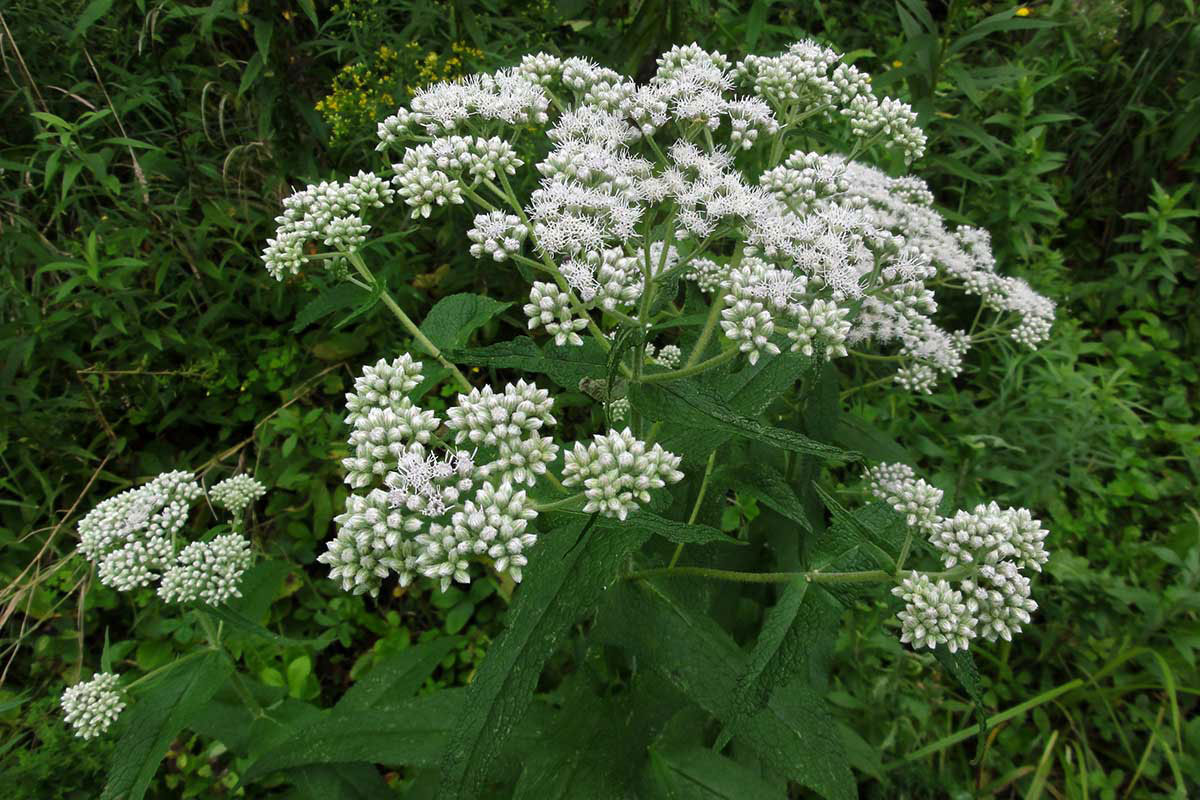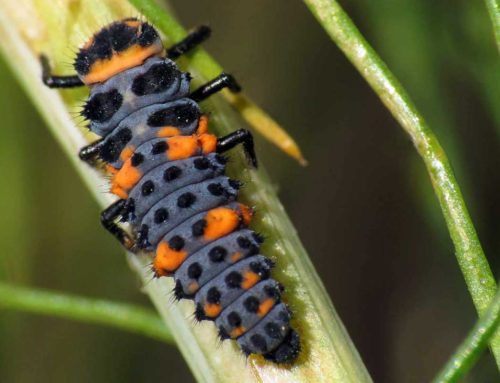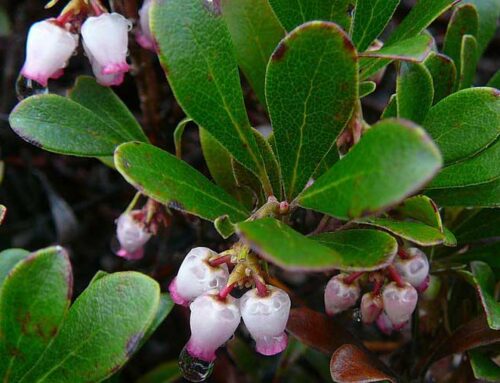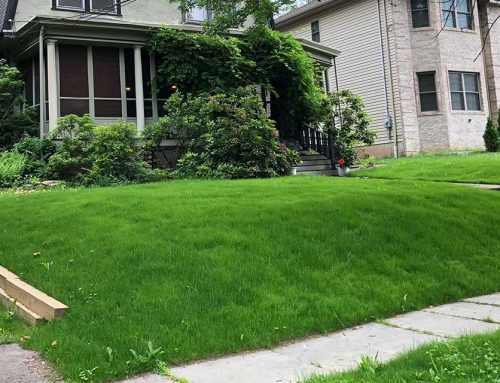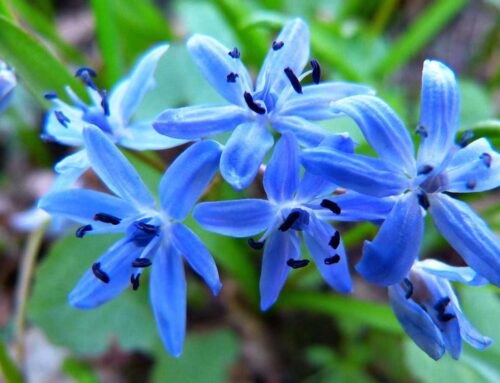Boneset “eupatorium perfoliatum”
Sustainable Landscaping with Native Plants
“Chances are, you have never thought of your garden, indeed of all of the space on your property, as a wildlife preserve that represents the last opportunity we have for sustaining plants and animals that were once common throughout the U.S.”
Late summer – Early Fall Blooming Native Plants
The pure, tiny white flowers of Boneset “eupatorium perfoliatum” stand-out in the late summer landscape and have a pleasant, floral scent that wafts through the garden air. They are arranged in fuzzy dull-white flower clusters of 10 to 20 florets. Groups of smaller clusters make up larger clusters that are 2 to 8 inches wide. Not only are the blooms fragrant, but they also make attractive cutting flowers, either fresh or dried, in floral arrangements. Many different insect species are attracted to the flowers as the nectar is relatively easy to access.
It is a host plant for the Spring Azure butterfly, the Boneset Borer, and Three-lined flower moth. Bonset has been recognized by pollination ecologists as attracting large numbers of native bees and butterflies, as well as beneficial wasps and beetles. Moths of several caterpillars feed on the foliage. Seed are occasionally eaten by swamp sparrows.
Tolerating part shade, this native perennial performs best in full sun. Because Boneset thrives in conditions like soggy clay soil, which can be too challenging for most other plants to grow in, consider using it in a rain garden or a woodland garden setting where the soil is constantly on the wet side.
Attributes
East-Coast Native
Long Blooming
Dried Flower
Naturalizing
Cut Flower
Clay Soil
Coastal
Bog
FLOWERING PERIOD
July – August – September
USDA HARDINESS
Zones 4 thru 8
DEER RESISTANT
SPACING
6 to 8 ft.
HEIGHT
3 to 4 ft
SPREAD
3 to 4 ft
FOLIAGE
The stems are covered with long white hairs and large bright green leaves. The leaves are lance shaped, toothed and up to 8” long. They are opposite with bases that are fused together. They wrap around the stem so that the stem appears to pass through the leaves. The stems terminate in loose flat topped corymbs from 3-8” across. Each corymb is composed of many fragrant white disc florets. Blooming begins in late summer and lasts for 1-2 months. Plants are pest resistant.
At Lincoln Landscaping cultivating the environment is our life and livelihood. It is our number one goal to help our clients create and maintain beautiful landscapes while reducing the impact on the environment. Whether you are interested in a pollinator landscape garden design and build or other landscaping or property management project; we can create for you an environmentally friendly, organic and beautiful property.
Lincoln Landscaping “The Natural Choice”
Mike Kolenut President & CEO
https://lincolnlandscapinginc.com
(201) 848-9699

